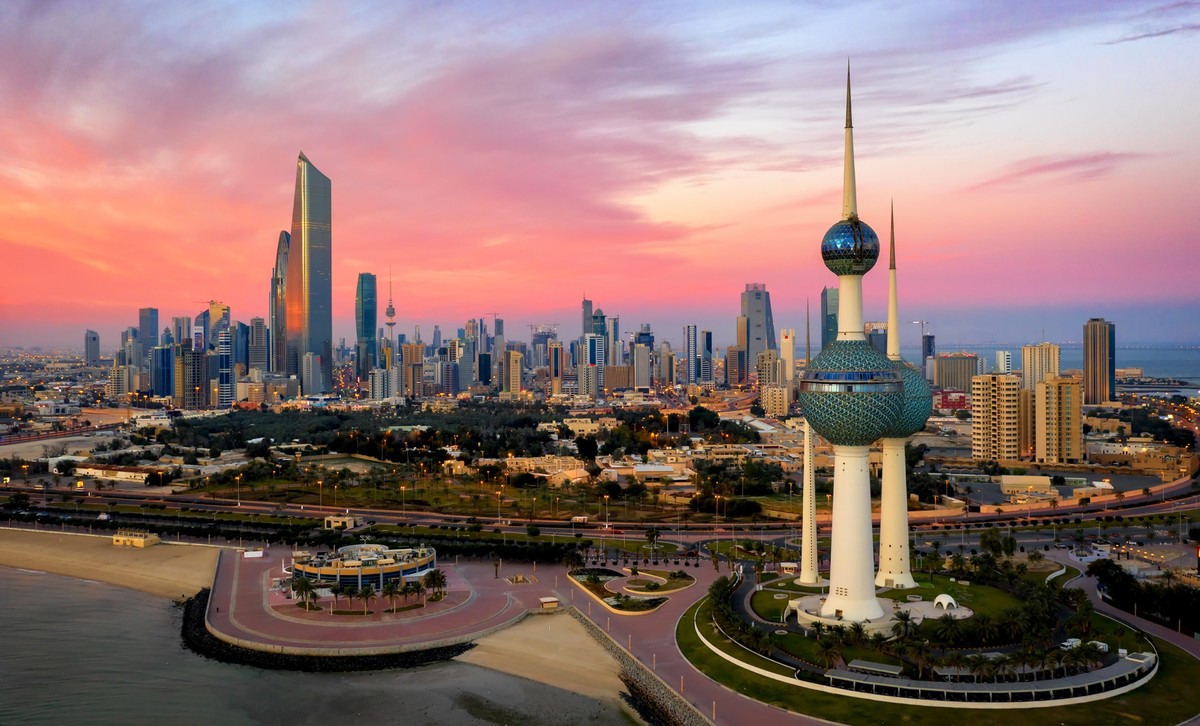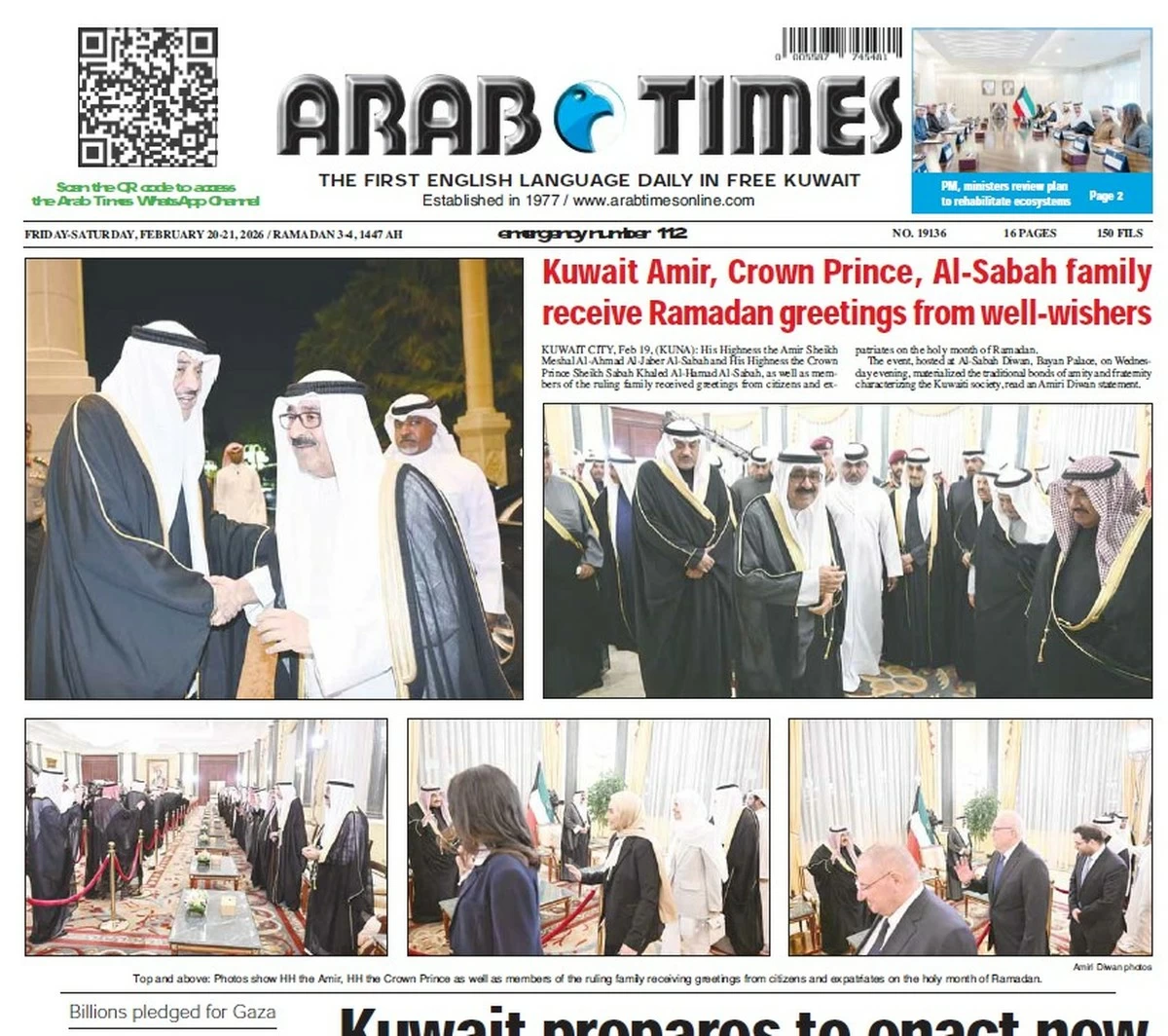03/05/2025
03/05/2025

KUWAIT CITY, May 3: Kuwait is rapidly establishing itself as one of the most intriguing destinations in the Middle East, attracting an increasing number of international visitors. The country’s unique blend of modern luxury, iconic landmarks, and deep cultural heritage is drawing travelers seeking an authentic experience combined with world-class amenities. With a steady rise in tourist arrivals over recent years, Kuwait is becoming a must-visit location, offering a fascinating mix of tradition and modernity. From the towering Kuwait Towers to upscale shopping malls like The Avenues, the country's tourism sector is flourishing, reflecting Kuwait’s strategic focus on diversifying its economy and positioning tourism as a key contributor to its future prosperity.
Despite its modest geographical size, Kuwait holds remarkable significance. Situated at the northern edge of the Arabian Peninsula, Kuwait spans just 17,818 square kilometers and borders Iraq to the north and Saudi Arabia to the south. With a population nearing five million, the country is making a considerable impact in terms of culture, economy, and now tourism. According to World Bank data, Kuwait is a country of contrasts—growing in global prominence while maintaining the charm of its rich history.
The Middle East, home to a variety of dynamic nations, continues to attract millions of visitors each year. In 2024, an estimated 95 million tourists visited the region. While countries like Saudi Arabia, Egypt, and the UAE have long been the top destinations, Kuwait — traditionally known for its oil reserves — is becoming an increasingly popular alternative for those seeking something beyond the typical Middle Eastern experience.
Kuwait shares borders with Iraq and Saudi Arabia, and its history includes significant milestones, most notably the tragic invasion by Saddam Hussein’s Iraq in 1990, which triggered the first Gulf War. However, since that dark chapter, Kuwait has undergone a period of recovery and growth, emerging as one of the wealthiest nations in the region, largely due to its abundant oil reserves.
In addition to its historical significance, Kuwait has become a hub for expatriates, many of whom work in the thriving oil industry and expanding financial sector. As a result, the country is rapidly gaining attention as an exciting destination for international travelers, offering a blend of modern architecture, historical landmarks, and a deep dive into its unique culture.
Kuwait’s tourism sector has seen consistent growth since 2000, with an annual increase of approximately 3%. In 2023, the country welcomed around 9.8 million tourists, and experts predict that number will rise to nearly 12 million by 2028. This upward trend highlights tourism's increasing role in Kuwait's economy, catering not only to business travelers and expatriates but also to those seeking to explore its unique attractions.
Kuwait is home to several iconic landmarks, with the Kuwait Towers standing as one of the most recognizable. Completed in 1979, these towers reach 187 meters in height and house shops, restaurants, cafes, and an observatory that offers panoramic views of Kuwait City and the Arabian Gulf. A visit to the Kuwait Towers has become a must for anyone wanting to experience the city's blend of modernity and tradition.
For those seeking a deeper cultural experience, Kuwait offers the Sadu House, a historical Kuwaiti dwelling that showcases the Bedouin weaving techniques and crafts that were once essential to life in the region. Visitors can explore the country’s roots through exhibits that reflect the craftsmanship passed down through generations.
In addition to its cultural offerings, Kuwait is also a major shopping destination. The Avenues, one of the largest malls in the region, hosts an extensive selection of high-end retailers, while Marina Mall offers a more traditional shopping experience, complete with a lively atmosphere and views of the coastline.
Despite its small size, Kuwait has a major presence in the global financial landscape. The Kuwaiti dinar (KWD) has been the world’s strongest currency since 1960, with one dinar currently worth US$3.26 or £2.44. This economic strength is driven by Kuwait’s vast oil reserves and its unique tax-free system, which has contributed to the country's financial stability and wealth.
Kuwait’s tourism sector is on track to become even more influential as the country continues to develop its infrastructure and diversify its economy beyond oil. The government is committed to promoting the nation’s unique cultural heritage while simultaneously investing in modern attractions to ensure that Kuwait remains an enticing destination for global travelers.
As the number of international visitors rises, Kuwait is positioning itself as a small yet increasingly significant player in the Middle Eastern tourism market. The country’s blend of historical sites, modern attractions, and rich culture is set to make it a key destination in the region for years to come.


